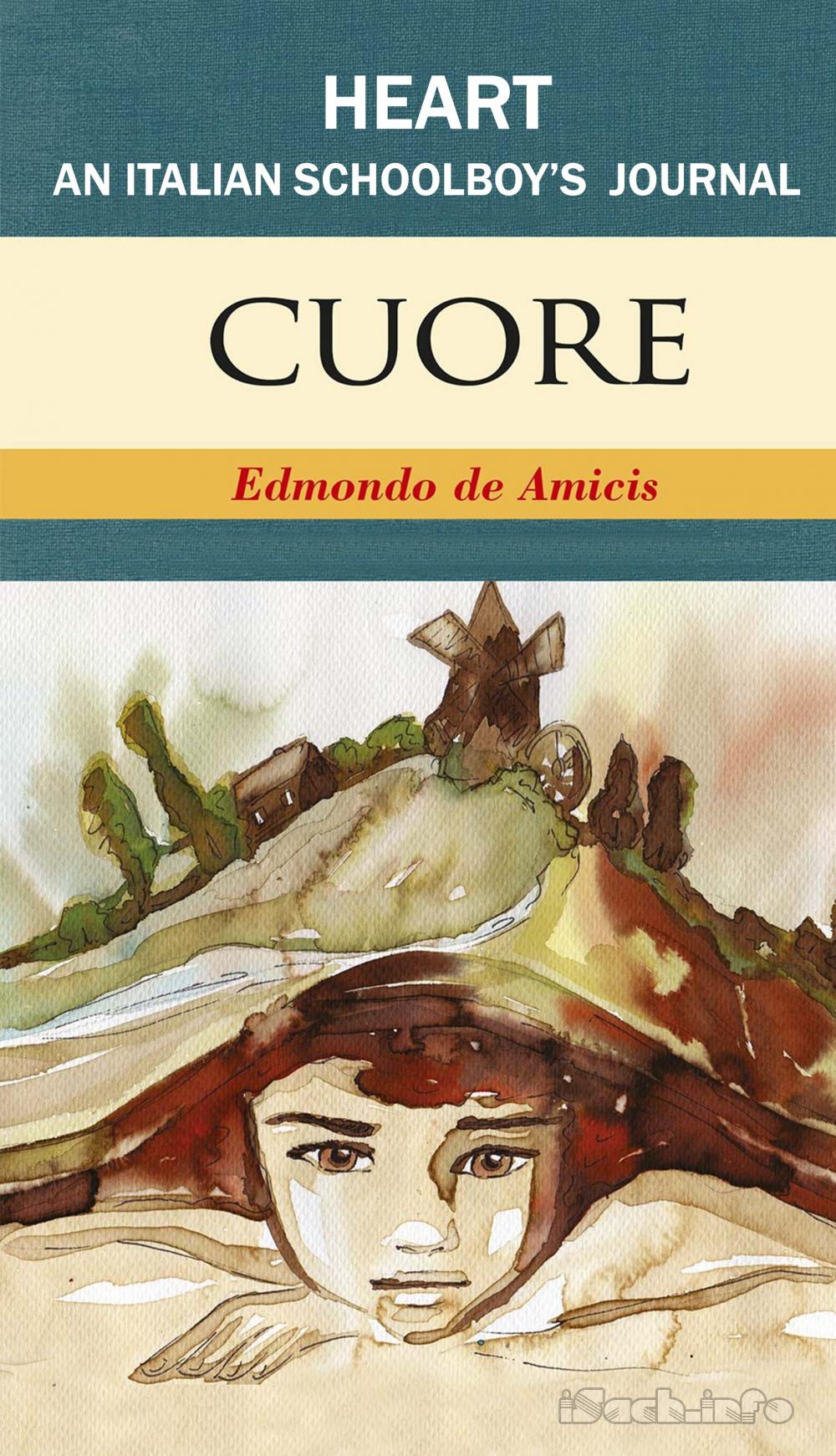Chapter 39: Franti Expelled From School
S
aturday, 21st.Only one boy was capable of laughing while Derossi was declaiming the funeral oration of the king, and Franti laughed. I detest that fellow. He is wicked. When a father comes to the school to reprove his son, he enjoys it; when any one cries, he laughs. He trembles before Garrone, and he strikes the little mason because he is small; he torments Crossi because he has a helpless arm; he ridicules Precossi, whom every one respects; he even jeers at Robetti, that boy in the second grade who walks on crutches, through having saved a child. He provokes those who are weaker than himself, and when it comes to blows, he grows ferocious and tries to do harm. There is something beneath that low forehead, in those turbid eyes, which he keeps nearly concealed under the visor of his small cap of waxed cloth, which inspires a shudder. He fears no one; he laughs in the master’s face; he steals when he gets a chance; he denies it with an impenetrable countenance; he is always engaged in a quarrel with someone; he brings big pins to school, to prick his neighbors with; he tears the buttons from his own jackets and from those of others, and plays with them: his paper, books, and copy-books are all crushed, torn, dirty; his ruler is jagged, his pens gnawed, his nails bitten, his clothes covered with stains and rents which he has got in his brawls. They say that his mother has fallen ill from the trouble that he causes her, and that his father has driven him from the house three times; his mother comes every now and then to make inquiries, and she always goes away in tears. He hates school, he hates his companions, he hates the teacher. The master sometimes pretends not to see his rascalities, and he behaves all the worse. He tried to get a hold on him by kind treatment, and the boy ridiculed him for it. He said terrible things to him, and the boy covered his face with his hands, as though he were crying; but he was laughing. He was suspended from school for three days, and he returned more perverse and insolent than before. Derossi said to him one day, “Stop it! don’t you see how much the teacher suffers?” and the other threatened to stick a nail into his stomach. But this morning, at last, he got himself driven out like a dog. While the master was giving to Garrone the rough draft of The Sardinian Drummer-Boy, the monthly story for January, to copy, he threw a petard on the floor, which exploded, making the schoolroom resound as from a discharge of musketry. The whole class was startled by it. The master sprang to his feet, and cried:—
“Franti, leave the school!”
The latter retorted, “It wasn’t I;” but he laughed. The master repeated:—
“Go!”
“I won’t stir,” he answered.
Then the master lost his temper, and flung himself upon him, seized him by the arms, and tore him from his seat. He resisted, ground his teeth, and made him carry him out by main force. The master bore him thus, heavy as he was, to the head-master, and then returned to the schoolroom alone and seated himself at his little table, with his head clutched in his hands, gasping, and with an expression of such weariness and trouble that it was painful to look at him.
“After teaching school for thirty years!” he exclaimed sadly, shaking his head. No one breathed. His hands were trembling with fury, and the perpendicular wrinkle that he has in the middle of his forehead was so deep that it seemed like a wound. Poor master! All felt sorry for him. Derossi rose and said, “Signor Master, do not grieve. We love you.” And then he grew a little more tranquil, and said, “We will go on with the lesson, boys.”



 ePub
ePub A4
A4